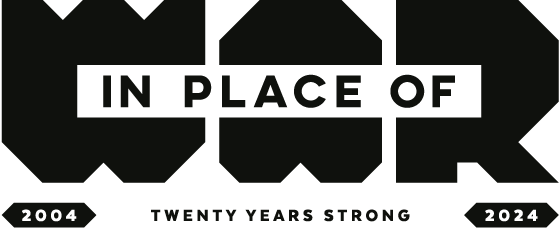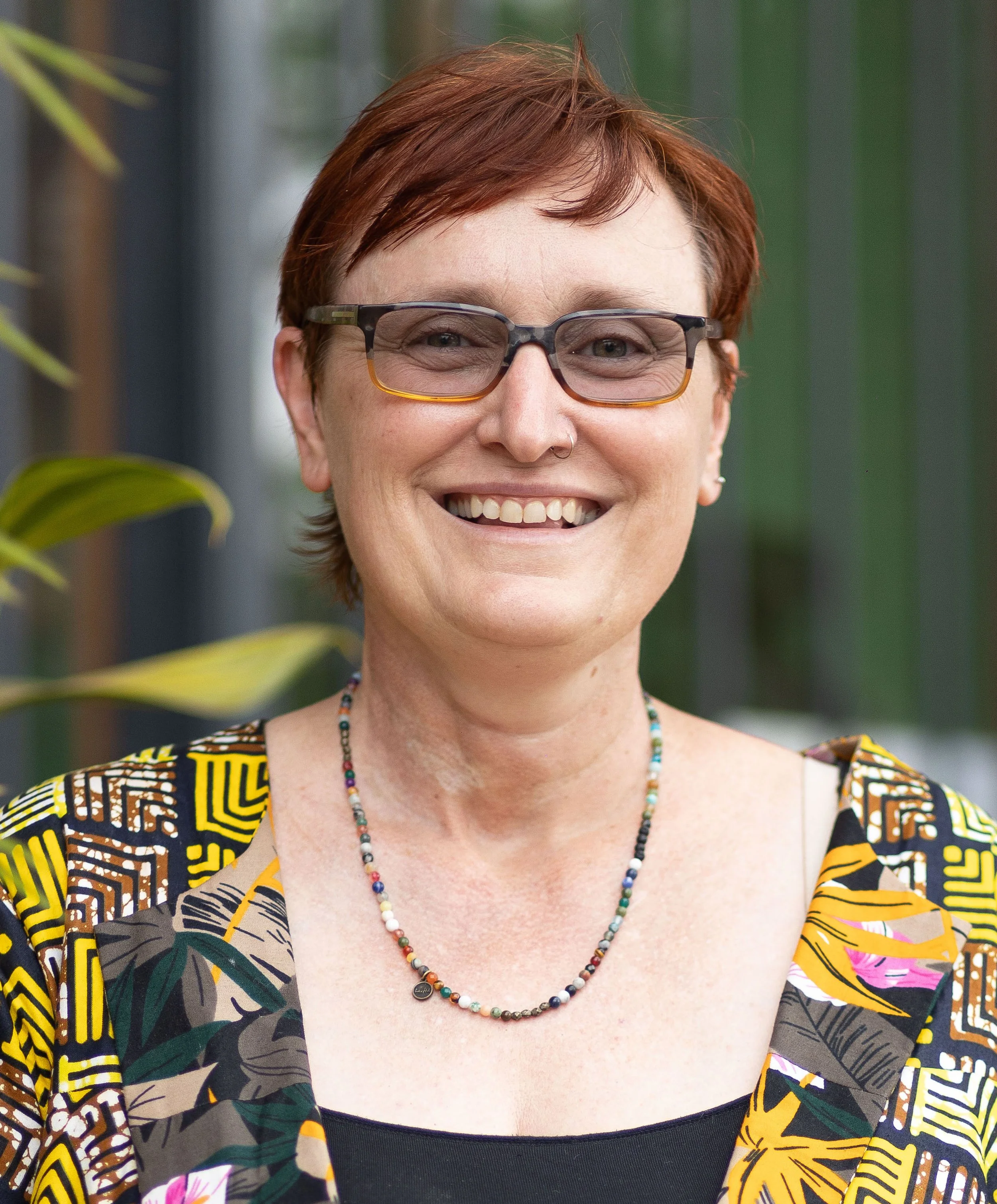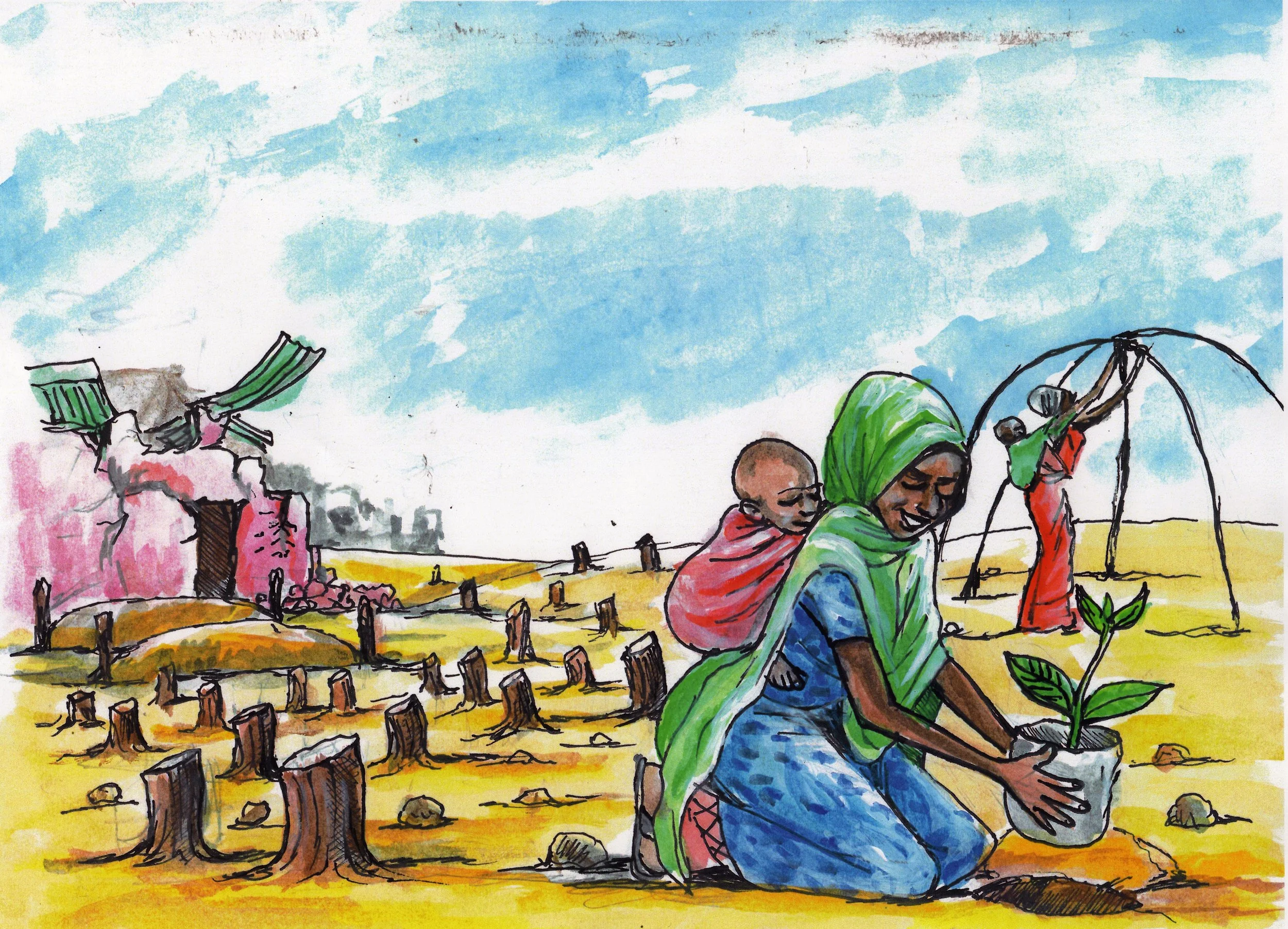ANGI YODER-MAINA
Angi Yoder-Maina, pioneering creative ways to address chronic violence in East Africa
Names: Angi Yoder-Maina
Organisation: Green String Network
Location: Nairobi, Kenya
Links: green-string.org
Twitter: @GSNAfrica / @angiyo58
Facebook: @greenstringnetwork
Instagram:www.instagram.com/greenstringnetwork
Overview: Angi Yoder-Maina is the Executive Director of a Kenyan NGO called Green String Network based in Nairobi, Kenya, that works regionally to build and strength capacity for social healing. Their programmes create opportunities for people in Somalia, Kenya, Ethiopia and South Sudan, at the most local level to learn about the effects of trauma and beginning to heal and come together as a community to plan community-wide activities and structures to support further healing and reconciliation. Green String Network uses storytelling, art and embodied practices to help people articulate the traumas they have been through and recognise how these experiences have shaped them. They then use these methods to unlock new ways of thinking, behaving and feeling, so that people can live more full and peaceful lives, as individuals and communities. This healing process is the first and fundamental step towards building peace, wellbeing and prosperity in the long-term.
Conflict: East Africa has endemic chronic violence in many forms: violent extremism, gang violence, domestic violence, human rights violations by the police, and election violence to name a few specific manifestations. In East Africa and the Horn, entire generations and nations live in chronic violence and have existed in survival mode for decades. The exposure to violence has long-lasting effects which are not well accounted for in conflict analysis, stabilisation efforts, peace building and governance initiatives. Extreme exposure to violence, abuse, neglect and marginalisation negatively affects levels of resilience and the ability of affected nations to transition from war to peace. The GSN team continues to find high levels of apathy, isolation, aggressiveness, abuse, chronic somatic illness and low levels of flexibility, tolerance and the ability to trust and work together as a result of the system of chronic violence. Angi has found chronic violence and protracted conflict continues to impact individuals, communities, and institutions. The social fabric is badly torn and repairing it can feel near impossible. Angi criticises the international community as ‘looking for quick fixes’ and the political nature of political reconciliation in the form of peace agreements at a political level which do not recognise or address underlying social and cultural factors.
Action & Results: The Green String Network was founded in September, 2016 and has grown rapidly in just 5 years. The organisation has worked with 14,243 direct participants, 168 community volunteers and trained 936 leaders in the Wellbeing and Resilience Framework. GSN has developed a model called the ‘Healing Centred Peace-building Approach’. The approach requires fundamental changes in how systems are designed, organisations function and practitioners engage with people. Key to a system’s transformation is that the intervention is not just about raising awareness, but rather changing behaviour, actions and responses. It uses a trauma lens to address the complexity of chronic violence, injustice, and inequity. The approach recognises that systems and structures which should be supportive of recovery are often greatly damaged by the same violence, and therefore often cannot provide the support needed to aid the rebuilding/integration processes. A healing-centred peace-building approach considers emotional and mental distress to be a critical variable in violent conflict and instability. Trauma is not only a consequence of violence but also a cause of instability, inequity and injustice.
The Green String Network combines lots of different kinds of knowledge. The team brings together psychologists, embodied practitioners, peace-builders, police officers, artists, storytellers, filmmakers, researchers, teachers, parents, young people, community leaders and people with lived experience. The programmes are volunteer-based focusing on providing a safe space for participants to explore issues of violence, the effects of trauma, social healing and dialogue. Key participants include youth leaders, at-risk youth, women’s groups, gender based violence (GBV) survivors, religious leaders, disabled groups like the hearing-impaired, and the business community. Emphasis is given to narratives which help individuals and groups break the ‘cycles of violence’, developing community-led peace initiatives. Leadership at all levels is engaged to support the break-away from a victimhood mentality.
Journey: Angi was raised in a Mennonite farming community in Iowa, US, which she describes as a ‘very insular community with a strong identity’ and that she just ‘wanted to get out’ and ‘to go far away and see other things’. In 1994 she took a degree in Peace Studies at Manchester University (US), which was a new field of study at the time, with this leading to roles working directly with vulnerable young people and refugees. After volunteering with AmeriCorps, she then worked in both Germany and Kosovo and it was here she started to develop her ideas that have become the Green String Network. Noticing how interventions that ‘should have worked on paper’ were having minimal impact, she developed a method that uses peer support around social healing, and the impact of trauma on decision-making as the foundation for successful peace building. She the continued her studies with a Masters in Public and Social Policy where she concentrated on conflict resolution and peace studies from Duquesne University (1998). Angi completed her PhD at the Centre for Peace and Conflict Studies in Siem Reap, Cambodia in 2000. Angi moved to Kenya in 2005 and later founded the Green String Network. Her husband is Kenyan, and she has also become a Kenyan citizen. She says being a woman hasn’t stopped her getting involved in peace-building, or interacting with governments and funders, although she appreciates that she has privileges as a white women in East Africa, and that such opportunities and respect may not be offered equally to local women.
Support: Angi is optimistic about the future, she feels there is starting to be shift in policy makers and donors, as they begin to understand that traditional approaches are not working. She says there has been a policy shift to include mental health and psychosocial elements in peace-building and violence prevention, although this does not go far enough. She wants the International Community, such as the EU, US, humanitarian organisations to focus on recovery and long-term solutions, and to embrace creative ways of looking at systemic violence. Angi aspires for the Green String Network to become a regional leader in pushing for this change.




